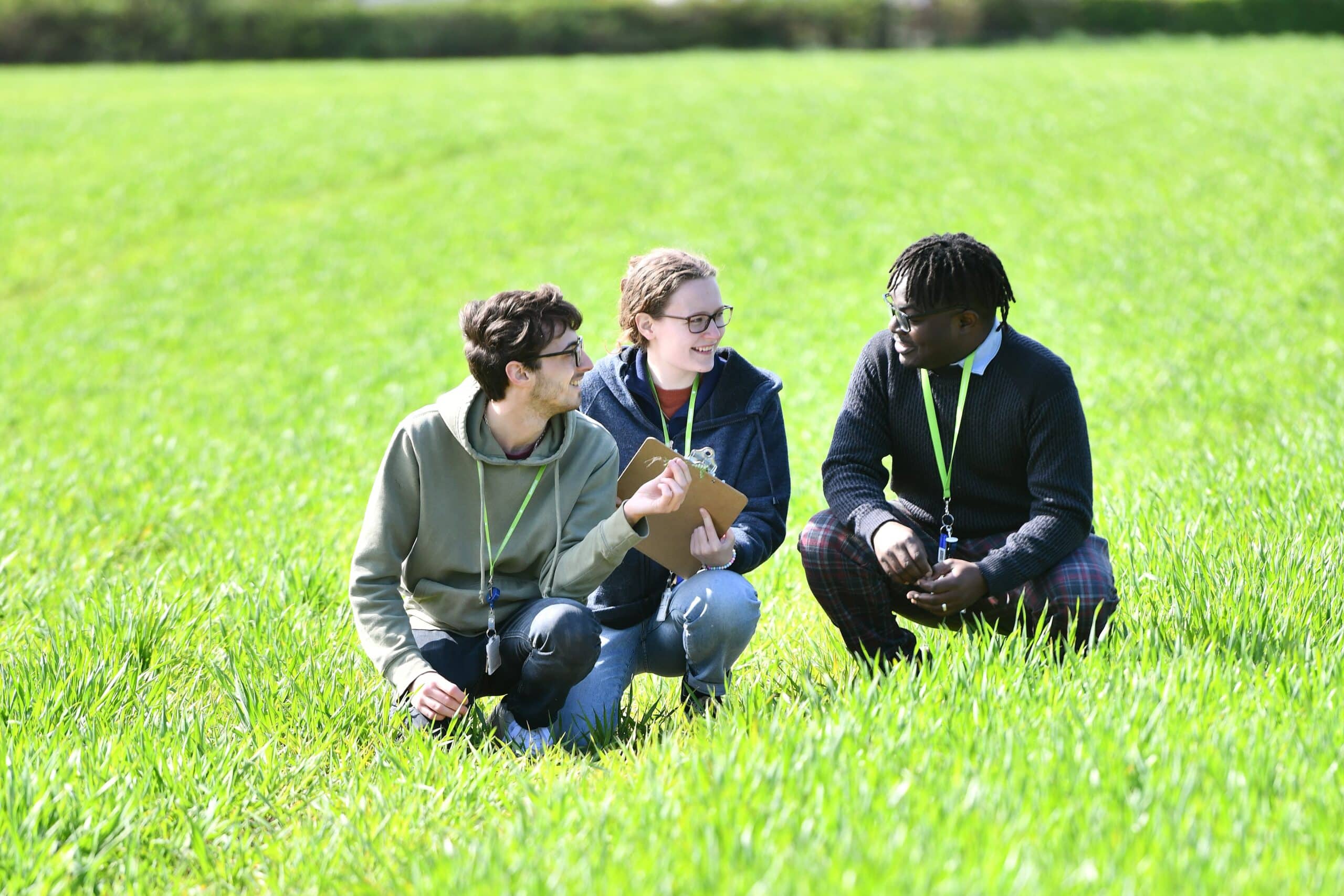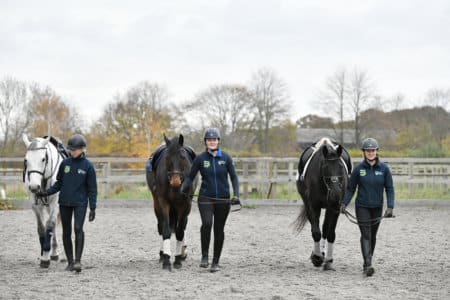Born and raised in Zimbabwe, Lance Vaughan’s longstanding interest in the agricultural process followed him all the way to Zambia. It was there that he observed farmers actively embracing regenerative methods and planting cover crops. Captivated by this sustainable approach, he recognised the need to equip himself with the knowledge and skills necessary for the future of farming.
Thankfully, Writtle University College (WUC) had just launched a BSc (Hons) Agriculture (Regenerative Systems) designed to prepare learners for the industry’s ever-evolving nature — due to political, economic, social and environmental influences. The first of its kind in the UK, the programme was developed to encompass thinking across conservation agriculture, agro-ecology, climate-smart agriculture, carbon farming, technology use, and integrated management practices. Students are also encouraged to explore the relevance of soil health and the integration of livestock.
Intimate classrooms ensure comprehension — something Vaughan knew was a must-have for his progression. “Writtle feels like being home with family,” he says. “Because it’s a small university, you know everyone, and you end up being closer to your lecturers, which might not happen in a university with very large classes. The people in our small classes have lots of different backgrounds and interests, so you get different perspectives on regenerative agriculture.”
Perhaps the unique combination of comprehensive modules and individualised attention is what makes WUC the ideal destination for aspirants looking to launch agriculture careers deeply rooted in knowledge and, of course, expertise. After all, lessons here are practical in every sense of the word.
The university’s campus, located in close proximity to the city of Chelmsford, hosts a number of specialist facilities — one of which includes a working farm featuring a pig unit, sheep and crops. Here, Vaughan gets to apply his knowledge by executing various tasks. Through his full-time role on the farm, he’s grown an extensive professional network and gained exposure to emerging technologies the continent of Africa has yet to leverage.
Such opportunities are open to all who come to WUC with agricultural aspirations. Apart from Vaughan’s course, the university offers a general BSc (Hons) Agriculture, a BSc (Hons) Agriculture (Regenerative Systems and Livestock), BSc (Hons) Sustainable Food Production (Fresh Produce), Foundation Year (Agriculture), Diploma of Higher Education in Agriculture, Diploma of Higher Education Sustainable Food Production (Fresh Produce), Certificate of Higher Education in Agriculture, and a Certificate of Higher Education Sustainable Food Production (Fresh Produce).
Postgraduate students make extensive use of WUC’s 200-hectarespacious estate while forging lasting connections. “The college organises interactive workshops, field trips, and practical sessions encouraging students to work together and exchange ideas,” says Patrick Phiri, a Marshal Papworth scholar from Malawi.
Phiri was thrilled about studying at WUC first and foremost because of its exceptional reputation for delivering five-star education and conducting ground-breaking research in the field of agriculture. Plus, its specialised MSc Crop Production (Agriculture) programme aligned perfectly with his deep interest in sustainable, nutritious food.
This route sees students examining crop growth by leveraging their university’s resources or by visiting growers and post-harvest facilities. Throughout, they can expect to deepen their understanding of the supply chain, tracing its intricate path from the field all the way to the point of sale. Pair this exposure with regular visits from industry experts, and students are guaranteed an education that is as relevant as can be.
“The most enjoyable and rewarding aspect of my degree at WUC has been the opportunity to work closely with faculty members and industry professionals who are passionate about their fields,” enthuses Phiri. “I believe our regular seminars, guest lectures, and research conferences promote the power of collaboration and build a wider sense of community within the land-based disciplines.”
Today, on the brink of graduation, Phiri is confident in his knowledge of the end-to-end processes of crop production and horticulture. Upon completing his programme, he hopes to return to Malawi and contribute his newfound expertise towards the advancement of agriculture. He wishes to address food security challenges and promote sustainable development throughout his career as well.
Similar impact can be made with WUC’s MBA in Agribusiness. With a specific focus on regenerative food systems, this programme was designed around connections between agri-food businesses, regenerative farming and hybrid production to promote environmental transformation. It’s an ideal choice for those keen on a career in sustainable, transformative food systems defined by three core principles: environmental sustainability, human well-being and circular economics embedded in policy and practice.
Regardless of the path you choose, WUC will still be an inspiring place to be, thanks to the discoveries that permeate every corner of its campus. Currently, the university’s land-based and animal teams are working alongside industry partners to establish a pig behaviour and welfare centre, research sow nutrition, develop the production of invertebrates for feed, conduct solar-powered vertical growing trials, and much more.
Of course, students are always welcome to contribute. If you’d like to be one of them, click here to learn more about applying to WUC. Or, click here instead to discover your student accommodation options first.
Follow Writtle University College on Facebook, Instagram, Twitter, YouTube, and LinkedIn











